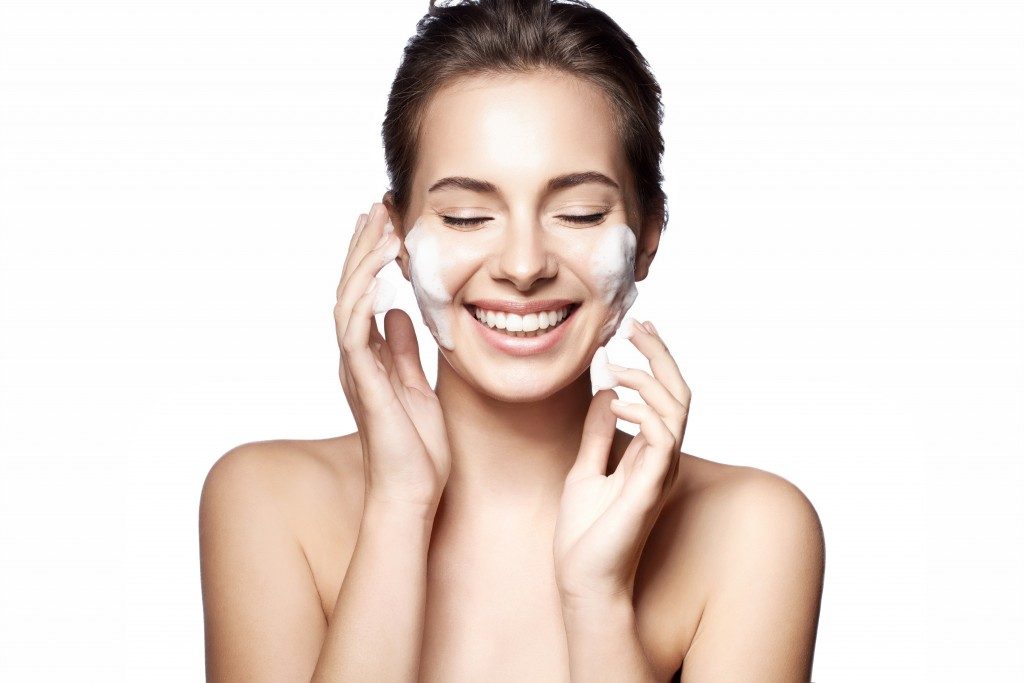Aside from being the largest organ, your skin works hard to protect you from falls and other hazards thanks to its layers and active role in protecting us from viruses, bacteria, pollution and chemical substances.
Skin also regulates our body temperatures, fluid and moisture balance as well as gives us protection from the sun’s harmful UV rays during the day. Like our other individual characteristics, age, genetics and hormone conditions affect the state of our skin.
Even though you cannot influence or change your skin color, you can still improve the external factors of your skin. A handful of factors such as diet, water, stress, diet and sleep can impact the external characteristics of the skin.
Before we delve into the basics, understanding your skin type can help you care for your skin properly and using appropriate products:
- Sensitive: Can sting or burn your skin after exposure to certain products.
- Dry: Becomes flaky, rough or itchy.
- Oily: Shiny and greasy skin.
- Combination: Oily in some areas and dry in others.
A Healthy Diet
Like plenty of other health advice out there, eating a healthy diet beneficial to your skin can benefit your other bodily functions as well. Hundreds of companies and industries exist for skincare, from soaps, lotions and other skincare products.
These products, however, only affect the external layers of your skin. Maintaining young and healthy skin goes skin deep and exists in the functions of our cells. Skin-friendly foods such as mangoes and tomatoes contain antioxidants and lycopene, ingredients that protect skin components such as collagen.
Tomatoes have also been known to decrease skin cancer development and prevent UV rays damage. Other foods to include in your diet include green and white tea, olive oils, omega-3 and soy that protects skin cells.
Reducing calorie intake has also been known to slow the aging process in the skin as well as other health benefits such as weight loss and balancing blood sugar.
Keeping Moisture
Moisturizers help the skin in keeping the top layer of cells hydrated. Other measures of maintaining moisture include the following, according to the American Academy of Dermatology:
- Taking 5-10 minute baths. Anything more can dry out the skin. Use moisturizers and lotions immediately after.
- Use gentle soaps and avoid harsh ones. The same goes for brushes and bath sponges that are too harsh and abrasive, especially for sensitive skin.
- Depending on your skin type, ointments may be more effective than lotions.
- Wear clothes that do not irritate your skin.
- Avoid overly long exposure to heat sources as they may dry out the skin faster.
- Drink enough water.
If following some of these steps don’t seem to moisturize your skin, seek a dermatologist in providing specific treatment. Hard water may be less effective in cleansing and moisturizing your skin, so the use of water softener systems here in Eagle Mountain can help clear hard water.
Quitting Smoking
Probably the second most common health advice behind a healthy diet, smoking accelerates the skin’s aging process and narrows blood vessels to the skin, reducing oxygen and blood flow. Smoking also reduces the skin’s natural elasticity.
Sleeping

Getting around 7-9 hours of sleep can help you reduce those annoying circles around your eyes and improve the tone of your skin. The National Sleep Foundation also recommends the appropriate number of sleeping hours for adults, as a lack of sleep can lead to obesity, immune system deficiency and even cancer.
A lack of sleep can lead to your skin, not being able to repair itself from factors such as sun exposure and environmental stress.
A lot of these tips stem from natural sources such as food and sleep, so purchasing expensive skincare products are not the only ways for maintaining a healthy glow. Taking care of our bodies and cells allow our skin to retain its youthful glow and elasticity, as well as improve our general health overall.

